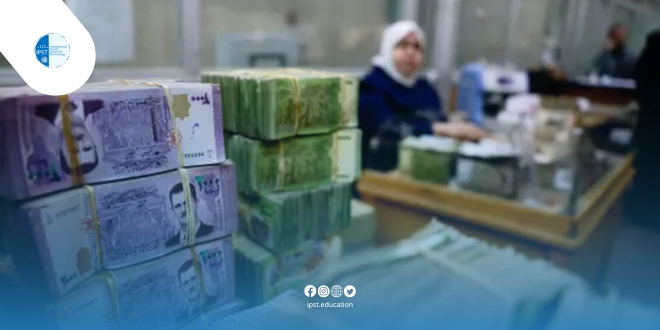Syria Receives New Shipment of Local Currency Printed in Russia Amid Improved Relations with Moscow
A government official revealed to Reuters that Syria received a new shipment of its local currency printed in Russia last Wednesday, with expectations for more shipments in the future. This development comes at a time of improving relations between Moscow and Damascus following the ousting of Bashar al-Assad in December.
Details of the Shipment and Arrival in Syria
Another informed source confirmed that the shipment arrived by plane at Damascus International Airport, and was then transported to the Central Bank of Syria by a convoy of trucks. Syria began paying Russia to print its local currency at the beginning of the Syrian war after terminating a contract with a company linked to the Austrian central bank due to European sanctions imposed on Syria.
Continued Cooperation with the New Syrian Government
It remains unclear whether the terms of the agreement with the new Syrian administration remain unchanged. However, informed sources confirmed that the arrangement continues.
Russia’s Support for Bashar al-Assad and Its Military Presence in Syria
Since the beginning of the Syrian war, Russia has strongly supported Bashar al-Assad. Russian airstrikes played a crucial role in shifting the balance of the conflict in his favor against revolutionary factions. In the weeks following Assad’s ousting, Moscow quickly moved to strengthen its relations with Damascus in order to maintain its military presence in the region, particularly on the Syrian Mediterranean coast, where Russia has two major military bases.
Currency Shipment and Diplomatic Meetings Between Syria and Russia
A senior Russian diplomat visited Damascus in January. Additionally, Syrian President Ahmed al-Sharaa held a phone call with Russian President Vladimir Putin in February. After this meeting, Syria received its first shipment of locally printed currency from Russia, totaling 300 billion Syrian pounds.
The Importance of Currency Shipments Amid the Economic Crisis
These currency shipments are crucial for Syria, particularly given the severe economic crisis the country has faced after 13 years of war. The country’s ability to provide liquidity has been significantly impacted by the shortage of local currency, leading to inflation and a worsening cash crisis.
Economic Challenges and Pressures on Local Businesses
A former senior Syrian official noted that Syria had been receiving monthly shipments of hundreds of billions of pounds in printed currency from Russia. Meanwhile, Syria’s economy is facing numerous challenges, including pressure on local businesses due to increased competition from foreign imports.
Government’s Efforts to Reduce Inflation
In previous statements, Maysa Sabreen, Governor of the Central Bank of Syria, confirmed that the bank aims to avoid printing additional Syrian pounds in order to reduce inflation. Despite this, the economic situation remains difficult.
Liquidity Shortages and Their Impact on the Lira in the Black Market
Amid the cash crisis, depositors in Syria have been facing difficulty withdrawing their savings from local banks. This liquidity challenge has placed increased pressure on local businesses, causing many to turn to the black market for foreign currency.
The Gap Between the Official and Parallel Markets
Although the Syrian Central Bank sets the official exchange rate at 13,000 lira to the dollar, the local currency is trading on the black market at around 10,000 lira to the dollar. This gap between the official and parallel markets represents a significant challenge for the Syrian economy.
Sources:
- News agencies
- Syrian government sources
 International Private School of Technology المدرسة الدولية الخاصة للتكنولوجيا Private School مدرسة خاصة للتكوين المهني
International Private School of Technology المدرسة الدولية الخاصة للتكنولوجيا Private School مدرسة خاصة للتكوين المهني


